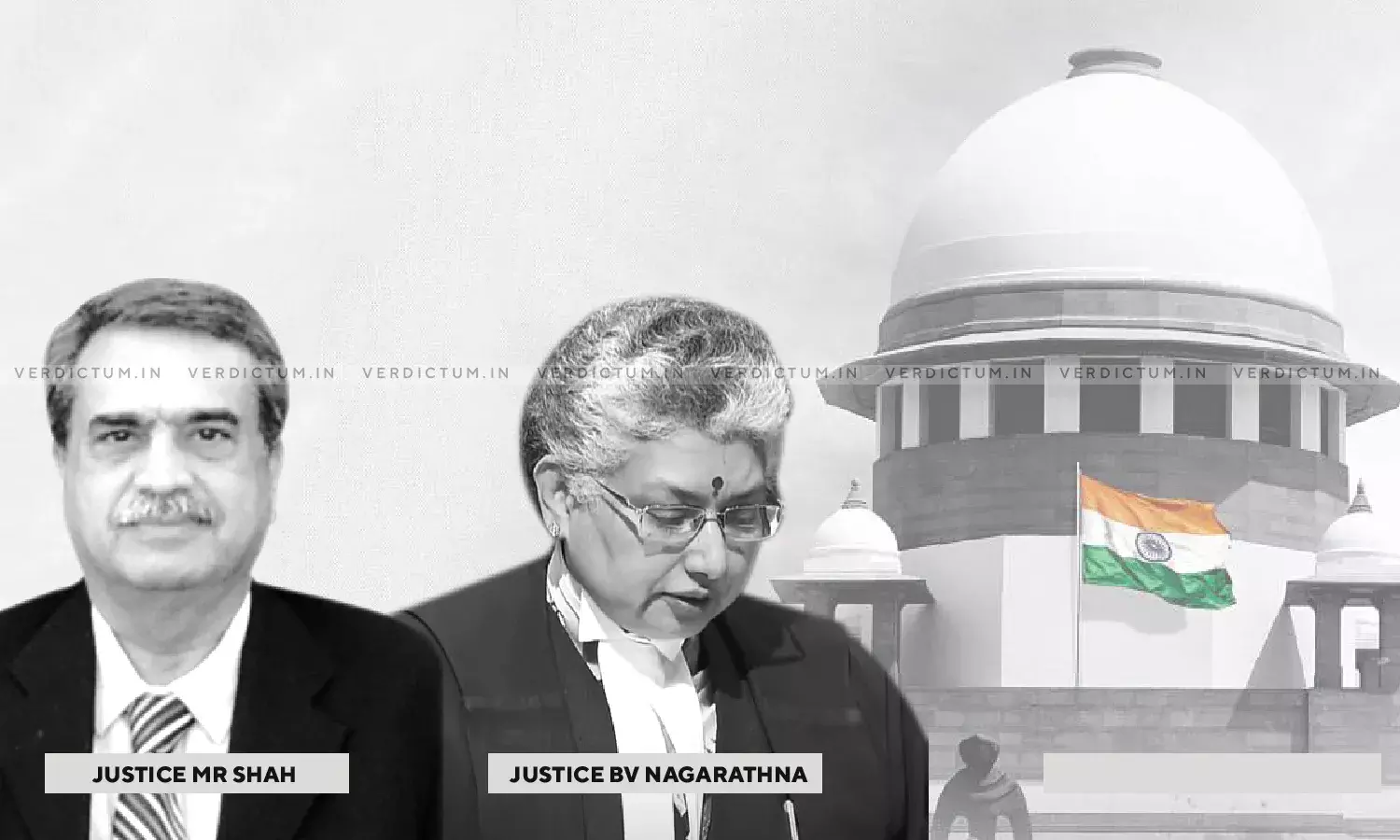Only Clerical or Arithmetical Mistakes In Order Fixing Or Revising Minimum Rates Of Wages Can Be Corrected - SC
A Supreme Court Bench of Justice M.R. Shah and Justice B.V. Nagarathna dismissed a judgment and order passed by the Bombay High Court which had upheld the validity of an Errata Notification modifying an earlier notification regarding the rates of minimum wages.
The Court observed, "Even as per Section 10, only the clerical or arithmetical mistakes in any order fixing or revising minimum rates of wages can be corrected."
Further, the Bench also held, "As observed hereinabove, as such, there was no clerical mistake at all and a conscious decision was taken while issuing the notification dated 23/24.05.2016 and therefore, the same could not have been corrected in exercise of powers under Section 10 of the Act, 1948."
Mr. Mayank Pandey appeared on behalf of the Appellant and Mr Abhay Anil Anturkar appeared on behalf of the State.
The State of Goa issued a notification in exercise of the powers conferred by the Minimum Wages Act, 1948, determining the minimum rates of wages payable to the various categories of the employees employed in various trades in the Scheduled Employment, which included the basic rates of wages plus special allowance. Then the State Government issued an Errata notification, by which it corrected the previous notification and fixed the minimum wages at an all-inclusive rate.
Aggrieved by the Errata notification, the Appellant approached the High Court, where the petition was dismissed. Then the Appellant approached the Supreme Court.
The Supreme Court noted that the minimum wages were revised and determined even after consultation with the Minimum Wage Advisory Board as required under Section 5 of the Act. To that end, it opined that once there was no mistake, the same could not have been corrected in the exercise of powers under Section 10 of the Act, since as per Section 10, only the clerical or arithmetical mistakes in any order fixing or revising minimum rates of wages can be corrected.
The Supreme Court relied on the case of Master Construction Co. (P) Ltd. Vs. State of Orissa and Anr., where it was determined what can be said to be an arithmetical or clerical error. It was observed and held that an arithmetical mistake is a mistake of calculation; a clerical mistake is a mistake in writing or typing and an error arising out of or occurring from an accidental slip or omission is an error due to a careless or inadvertent mistake or omission unintentionally made.
To that end, the Supreme Court noted that a conscious decision was taken by the State Government after consultation with the Minimum Wage Advisory Board and thereafter the minimum wages were revised and determined. Therefore, it opined that it could not be said that there was any arithmetical and/or clerical mistake, which could have been corrected in the exercise of powers under Section 10 of the Act.
Further, the Court also held that even by applying Section 21 of the General Clauses Act and assuming that the State was having the power to amend the notification, that power could only be exercised after following the procedure that was followed while issuing the original notification. Since the due procedure was not followed, the Court held that the notification could not have been modified by the Errata Notification.
The Court opined that the Errata Notification was wholly without jurisdiction and contrary to the provisions of the Act.
Accordingly, the Supreme Court allowed the Appeal, while quashing and setting aside the Errata Notification and restoring the original notification.
Click here to read/download the Judgment



